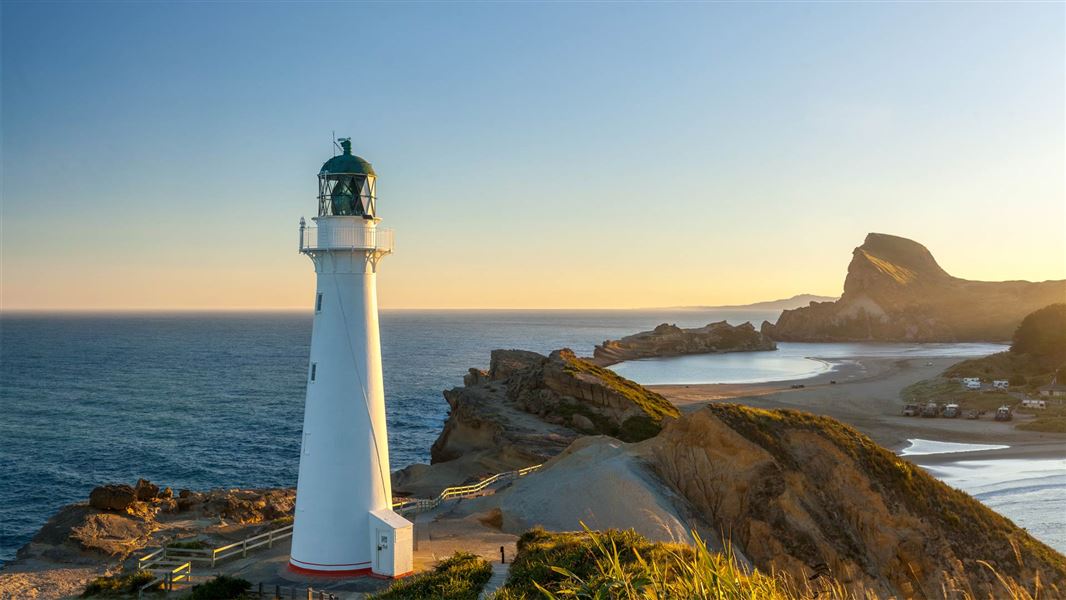There are several walks suitable for most age and fitness levels in and around the scenic reserve. All walks begin at the roadend carpark.
Castlepoint is located on Wairarapa's east coast about 1 hour's drive from Masterton.
Turn right into Te Ore Ore Road on the northern outskirts of Masterton. This road becomes the Masterton Castlepoint Road and leads directly to Castlepoint.
There is a store and tearooms on the beach front. Public toilets are located at the road end and opposite the store.
Safety
Be aware that Castlepoint beach is a shared use area. There are vehicles allowed on the beach (though not the sand dunes) – this includes motorbikes, cars/4WDs and tractors towing boats. Motorised vessels like boats and jet skis use/launch from an area where people also swim and surf. Be aware of other users, stay alert, and go slowly and carefully if you are in a vehicle/vessel. Supervise children at all times.
There are high cliffs in Castlepoint Scenic Reserve, particularly around the Lighthouse and Castle Rock. Keep to the marked track, supervise children carefully, and avoid cliff edges. For safety reasons, we do not recommend climbing to the top of Castle Rock.
There may be rockfall near Castle Rock - keep away from cliffs.
The reef is extremely dangerous and sea conditions are unpredictable. Beware of tidal and rogue waves.
You may unexpectedly encounter New Zealand fur seals within this reserve. Do not disturb or approach them.
Remember
- Camping is not permitted in the reserve. Castlepoint Motor camp at the northern end of the beach is the only place where camping is permitted.
- Motorcycles and other vehicles are not permitted on the sand dunes.
- Removal of fossils is not permitted.
- Remove your litter when you leave.
- Recycle aluminium, glass, paper, and plastic.
- Keep dogs on a leash.
- Do not disturb nesting birds.
The reef, lagoon, sand dunes, and Castle Rock are all part of Castlepoint Scenic Reserve. As well as protecting outstanding landforms, the reserve is the only location in the world of a rare shrubby daisy. Castlepoint daisy Brachyglottis compactus grows only on the crumbled limestone of the reef and Castle Rock.
Frequently visited by several species of dolphin, as well as fur seals, and occasionally small whale species, the reserve is also home to numerous sea birds. White-fronted terns, red-billed gulls, and black shags inhabit the south end of the reef, and reef herons and black-backed gulls nest on the sheer cliffs of Castle Rock.
Castlepoint was named in 1770 by Captain Cook who was struck by the similarities of Castle Rock to the battlements of a castle.
With its fossil-rich limestone reef and magnificent 162 m high Castle Rock, Castlepoint is one of the most spectacular sites along the Wairarapa coastline. Long stretches of beach and a sheltered lagoon provide opportunity for a variety of waterbased recreational pursuits, and the area has a rich natural history.
Wairarapa information
| Phone: | +64 3 546 9339 |
| Email: | nelsonvc@doc.govt.nz |
| About: | Whakatū/Nelson Visitor Centre provides visitor information for this area |
